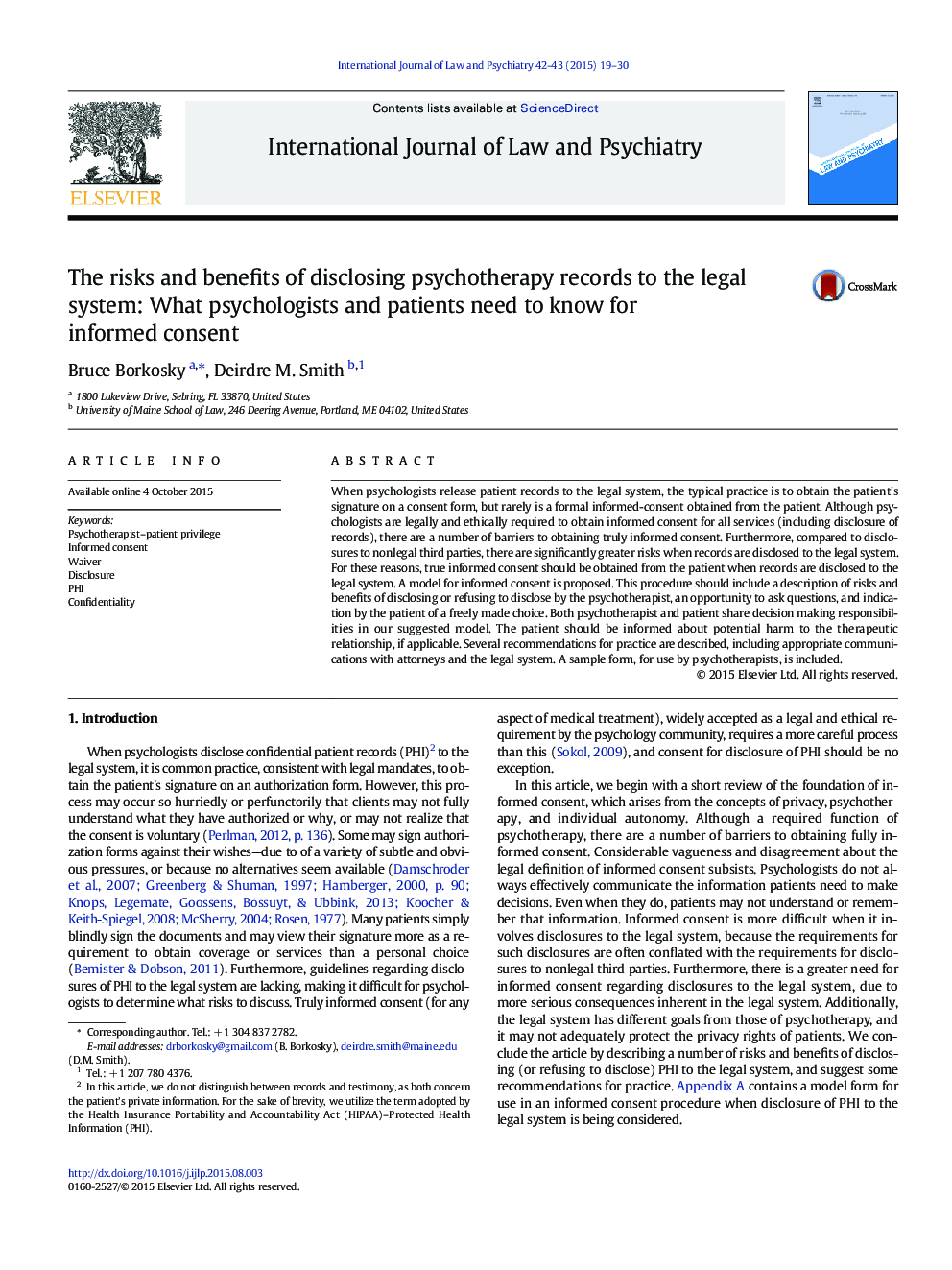| Article ID | Journal | Published Year | Pages | File Type |
|---|---|---|---|---|
| 100706 | International Journal of Law and Psychiatry | 2015 | 12 Pages |
When psychologists release patient records to the legal system, the typical practice is to obtain the patient's signature on a consent form, but rarely is a formal informed-consent obtained from the patient. Although psychologists are legally and ethically required to obtain informed consent for all services (including disclosure of records), there are a number of barriers to obtaining truly informed consent. Furthermore, compared to disclosures to nonlegal third parties, there are significantly greater risks when records are disclosed to the legal system. For these reasons, true informed consent should be obtained from the patient when records are disclosed to the legal system. A model for informed consent is proposed. This procedure should include a description of risks and benefits of disclosing or refusing to disclose by the psychotherapist, an opportunity to ask questions, and indication by the patient of a freely made choice. Both psychotherapist and patient share decision making responsibilities in our suggested model. The patient should be informed about potential harm to the therapeutic relationship, if applicable. Several recommendations for practice are described, including appropriate communications with attorneys and the legal system. A sample form, for use by psychotherapists, is included.
